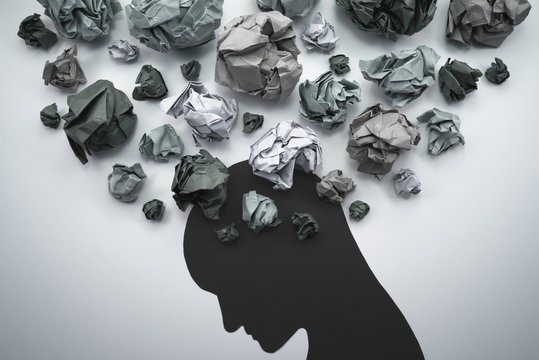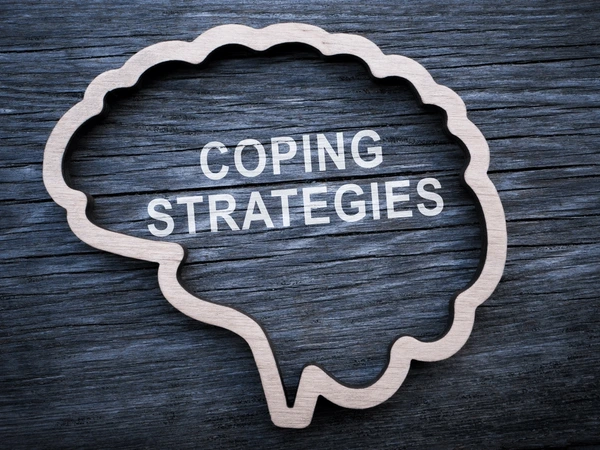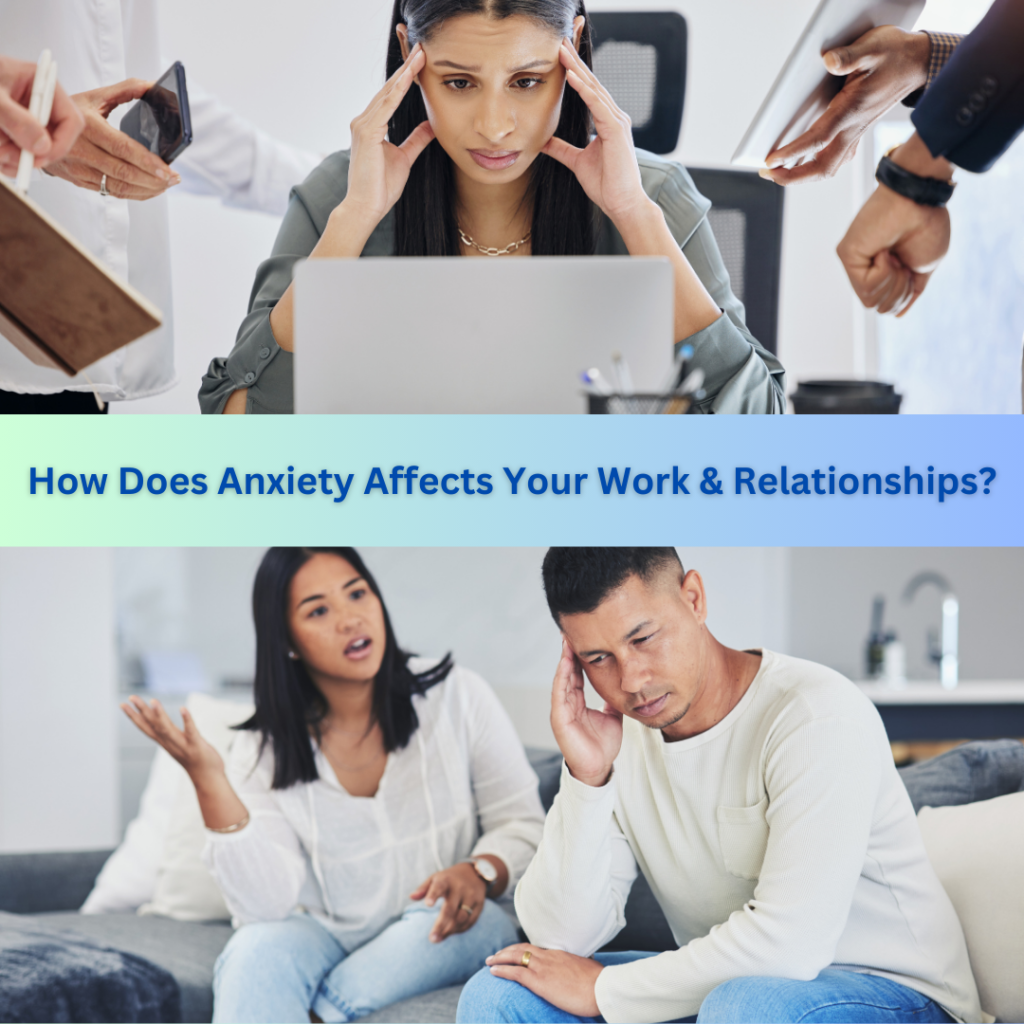Introduction
Two years ago, I had my first anxiety attack. It was a night that would forever change my life. Up until that moment, I didn’t fully understand what an anxiety attack was or how profoundly it could affect one’s mental health. Lying in bed, I felt a crushing weight on my chest and a rush of fear.
I genuinely thought I was having a heart attack. This terrifying experience marked the beginning of my journey to understanding anxiety and hope.
What is an Anxiety Attack?

An anxiety attack is a sudden and intense episode of fear and discomfort. During an attack, one might experience symptoms like heart palpitations, shortness of breath, and dizziness, accompanied by an overwhelming sense of dread. These attacks are typically triggered by perceived threats or prolonged stress, profoundly impacting one’s daily life.
The Onset of My Anxiety
Before that fateful night, anxiety was an alien concept to me. Even minor worries didn’t seem to impact me significantly. However, as I lay there feeling utterly helpless, I prayed for strength to overcome whatever was happening to me. Miraculously, I felt normal again shortly after, but I knew something significant had occurred — something that needed understanding and attention and thats how my journey started to overcome anxiety and Hope.
Impact on My Daily Life and Relationships

Gradually, anxiety began to disturb my daily routines. Overthinking and negative thoughts clouded my focus, making it difficult to work effectively. Not only did my professional life suffer, but my personal relationships also began to deteriorate. I found it hard to explain what was wrong, and my loved ones couldn’t understand the invisible battle I was fighting.
Seeking Help and Understanding

Realizing I needed help was crucial. I spoke to a friend who is also a therapist. She confirmed my experience as an anxiety attack and provided immense comfort. She reassured me that what I was experiencing was normal and treatable, which encouraged me to explore various coping techniques. Intervention of the medical expertise at the right time will help in big level.Do not loose the hope in the journey the battle of anxiety can be deafted with the help of expertise only.
Coping Techniques That Helped Me

- Breathing Exercises: Regular practice helped me calm down during anxious moments. I found that deep, controlled breathing could significantly reduce the intensity of an attack.
- Identifying Triggers: I learned to recognize and avoid situations that sparked my anxiety, such as overthinking or consuming negative content.
- Meditation: Starting with just 10 minutes a day, I gradually increased the duration, finding peace and clarity through mindfulness.
- Connecting with Nature: Taking walks outdoors helped me focus on self-care and mindfulness. The tranquility of nature provided a soothing escape from my anxious thoughts.
- Technology Breaks: Periodically disconnecting from gadgets allowed me to reconnect with myself and the world around me. Reducing screen time made a noticeable difference in my anxiety levels.
Turning Point in My Journey
The combination of seeking help and implementing these coping strategies marked a turning point. Recognizing that I was not alone in this struggle was profoundly liberating. I embraced practices like gratitude, focusing on my strengths, and engaging in self-care, which transformed my approach to managing anxiety.
My Current Experience with Anxiety
With time and consistent effort, I’ve learned to manage the overpowering feelings of anxiety. Whenever I sense those familiar signs, I now know how to calm myself and engage in proactive coping strategies. This has allowed me to regain control over my emotions and lead a more balanced life.
The Physical Toll of Anxiety
Anxiety doesn’t just affect the mind; it takes a toll on the body as well. During my worst periods, I experienced constant fatigue, headaches, and muscle tension. It felt as if my body was always in a state of high alert, ready to respond to a threat that didn’t exist. Learning to manage my anxiety also meant learning to listen to my body and give it the rest and care it needed.
The Impact on Work

Anxiety significantly affected my professional life. Concentration became a challenge, and I often found myself doubting my abilities. Simple tasks felt overwhelming, and deadlines became sources of dread. It took a lot of effort to maintain my performance at work, and I had to develop new strategies to stay productive despite my anxiety. Open communication with my colleagues and superiors about my struggles also helped create a more understanding and supportive work environment.
Relationships and Anxiety
Anxiety also strained my relationships. It was hard for others to understand what I was going through, and I often felt isolated. I became more irritable and withdrawn, which affected my interactions with friends and family. It took time and patience to explain my condition to them and to help them understand how they could support me. Building a support system was essential, and I learned to appreciate the importance of honest communication and mutual understanding in maintaining healthy relationships.
Exploring More Coping Techniques
- Exercise: Physical activity became a crucial part of my routine. Regular exercise helped release endorphins, which naturally reduced my anxiety levels. Whether it was a brisk walk, yoga, or a gym session, staying active made a significant difference.
- Healthy Eating: Nutrition played a role in managing my anxiety. I focused on a balanced diet rich in fruits, vegetables, and whole grains. Avoiding caffeine and sugar helped stabilize my mood and energy levels.
- Creative Outlets: Engaging in creative activities like writing, drawing, or playing music provided an outlet for my emotions. It was a way to express myself and release built-up tension.
- Social Connections: Building and maintaining social connections was vital. Spending time with friends and family, even if just for a short while, helped me feel supported and less alone.
- Therapy: Regular sessions with a therapist provided a safe space to discuss my feelings and develop strategies to cope with anxiety. Professional guidance was invaluable in my journey to recovery.
Mindfulness and Gratitude
Mindfulness and gratitude became central to my daily practice. Taking a few minutes each day to reflect on what I was grateful for helped shift my focus from worries to positive aspects of my life. Mindfulness techniques, such as body scans and guided imagery, helped me stay present and reduce the impact of anxious thoughts.
Understanding and Accepting Anxiety
One of the most important lessons I learned was to understand and accept my anxiety. Fighting it or denying its existence only made things worse. Instead, I learned to acknowledge my feelings without judgment and to approach them with compassion. This acceptance allowed me to respond to anxiety more effectively and to see it as a part of my life that I could manage.
The Role of Self-Care
Self-care played a pivotal role in my journey. It wasn’t just about taking bubble baths or treating myself to something nice; it was about making choices that supported my overall well-being. This included setting boundaries, prioritizing rest, and engaging in activities that brought me joy and fulfillment. Self-care became a way of showing myself the love and respect I deserved.
Continuing the Journey
Managing anxiety is an ongoing process. There are still days when I struggle, but I have learned that it’s okay to have setbacks. Each day is an opportunity to practice the techniques that help me feel better and to seek support when needed. The journey through anxiety has taught me resilience, self-compassion, and the importance of mental health. I continue to grow and learn, finding new ways to live a balanced and fulfilling life despite the challenges.
Conclusion and Takeaway
My journey through anxiety started with a horrifying experience, but it led me to seek knowledge and timely medical advice. This path has taught me that I’m not alone, and it’s okay to seek help. For anyone struggling with anxiety, remember: that you are not alone, and there is no shame in seeking support. Like any medical condition, anxiety is manageable with the right strategies and support. Take one day at a time, and trust in your ability to overcome.
I will be happy and blessed if my story can change someone’s life who is battling with anxiety attacks or any other Mental Health Challenges. People need to be a bit more empathetic while having a conversation with someone who is going through mental health challenges.
Remember “Each One Teach One” rightfully about mental health challenges.